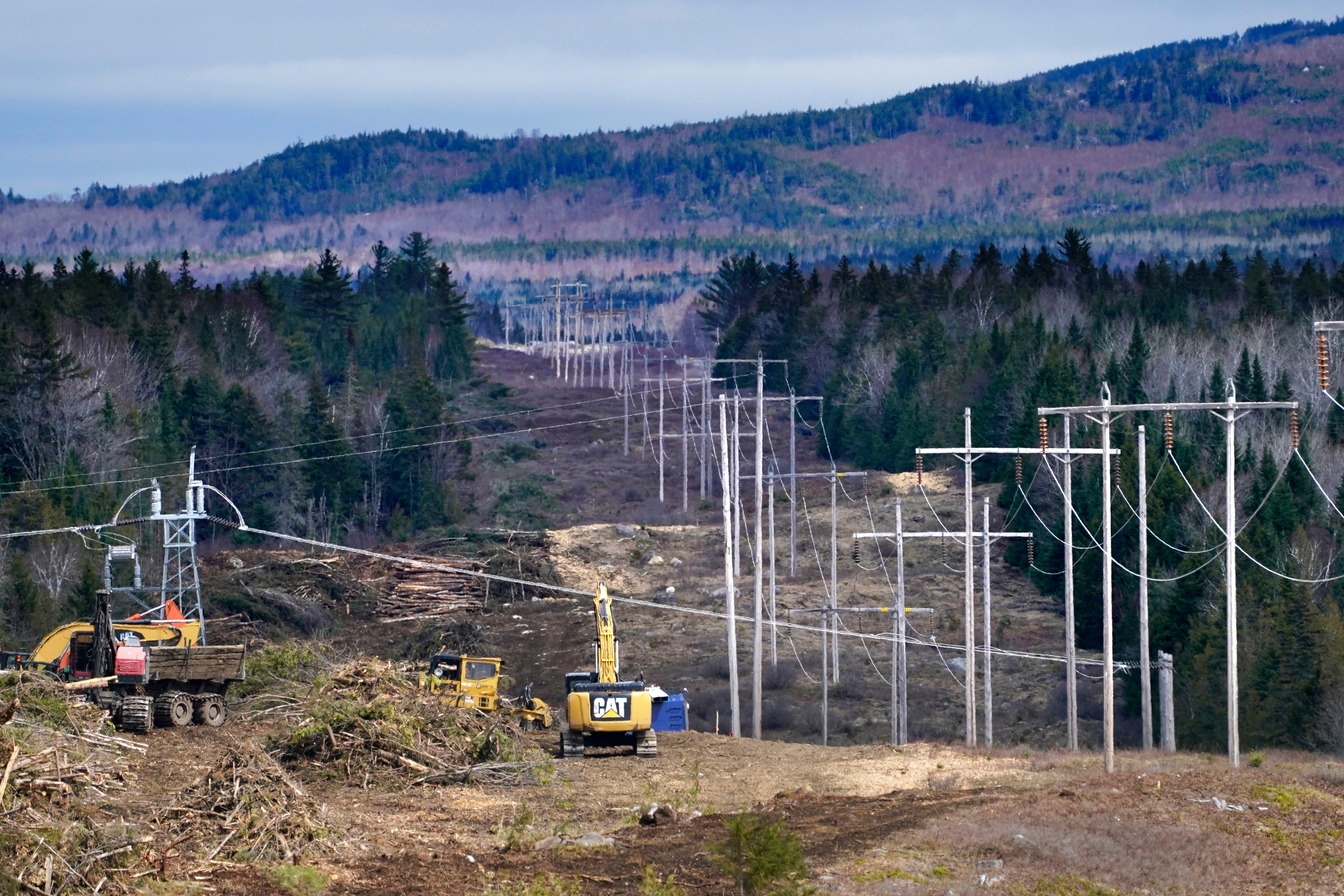Massachusetts ratepayers to pay extra $512M for transmission line for Canadian hydropower
Three Massachusetts utilities and a transmission line developer have agreed to pass along $512 million in added costs to Massachusetts ratepayers for an electric transmission project in western Maine

Three Massachusetts utilities and Central Maine Power’s parent company have agreed that Massachusetts ratepayers must shoulder $512 million in additional costs caused by delays in construction of a power transmission project in Maine that will allow Canadian hydropower to reach the New England power grid.
Proponents said Wednesday that the project aimed at supplying enough clean energy to power about 1 million homes still represents a good deal despite delays and new costs.
“Even with these unanticipated costs, this is clean energy at a pretty good price. I’m not sure we’ll be at prices this low in the future. So we should grit our teeth, absorb the extra expense and get on with it,” said Massachusetts state Sen. Michael Barrett of Lexington, co-chair of the Legislature’s Telecommunications, Utilities and Energy Committee.
The project’s cost grew from $1 billion to at least $1.5 billion because of inflation and delays caused by opponents, requiring the Massachusetts Legislature to give its approval late last year for most of the added costs to be passed on to ratepayers.
The Massachusetts Department of Energy Resources and attorney general’s office signed onto the agreement, which the parties submitted to the state Department of Utilities for approval on Monday.
Supporters of the project say the 1,200 megawatts of electricity it provides would lower electric rates across the region, reduce carbon pollution and help Massachusetts to meet its clean energy goals.
“This transmission line should drive down overall electricity prices and deliver new, reliable power to Massachusetts and New England as we transition to clean energy. We look forward to clean hydropower to begin flowing to our state soon,” said Elizabeth Mahoney, energy resources commissioner, and Liz Anderson, from the attorney general's office.
Documents filed with the Massachusetts Department of Public Utilities indicate Massachusetts ratepayers would save about $3.4 billion over the 20-year contract based on forecasted prices.
Central Maine Power’s parent company, Avangrid, and Canada’s Hydro Quebec teamed up on the project that called for a 145-mile (233-kilometer) power transmission line, mostly following existing corridors. But a new 53-mile (85-kilometer) section had to be carved through the woods to reach the Canadian border, something environmental and conservation groups decried.
The project had to overcome multiple hurdles.
It won all regulatory approvals, but work was halted after Maine voters rebuked the project in a November 2021 referendum. A jury concluded the referendum was unconstitutional because it violated the developers' vested rights.
Bookmark popover
Removed from bookmarks